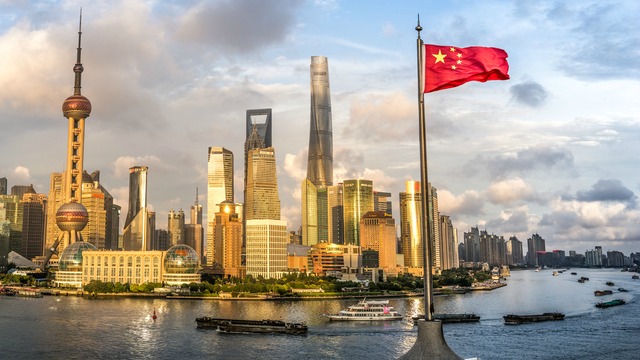Single-country funds: the risks, rewards and best countries to back
Do the risks of investing in single-country funds in emerging markets outweigh the rewards?
17th February 2021 14:14
by David Craik from interactive investor
Do the risks of investing in single-country funds in emerging markets outweigh the rewards?

Oil prices have been volatile in the last 12 months battered by the pandemic and simmering tensions between leading producers Saudi Arabia and Russia. The turmoil has left its mark on investments with exchange-traded fund (ETF) provider – HANetf – closing its Kuwait Equity focused fund earlier this month.
The ETF, whose holdings in the oil-rich state took in the National Bank of Kuwait, produced a 28.1% return in 2019 but slumped to a loss of 10.9% in 2020.
“Because energy was on its knees, market interest fell out of bed,” says Hector McNeil, co-chief executive officer of HANetf. “There are very few energy companies in the index, but Kuwait’s gross domestic product is so tied up with oil that everyone was impacted. We didn’t feel the ETF was going to be an attractive investment until oil recovered.”
In contrast HANetf’s EMQQ Emerging Markets Internet & Ecommerce ETF (LSE:EMQQ), which includes holdings such as Chinese tech firm Tencent (SEHK:700) had a stellar last 12 months, posting a 95.4% return.
- The ETFs Show: Hector McNeil of HANetf on trends in ETFs
- Why are so many global funds underperforming the index?
Kuwait wasn’t the only emerging market country to suffer. The iShares MSCI Brazil ETF (LSE:IBZL) is is down 20.4% on a one-year basis as of 31 January 2021 after it was hit by Covid and volatile commodity prices. The iShares MSCI Indonesia ETF’s Total Return is down 6.7% over the same one-year time period after it moved into recession, hit by the drying up of international tourism. This compares with the MSCI Emerging Markets Index, which is up 27.89% on a one-year basis and up 15% over five years.
Broad approach or pick a country?
This raises the question of whether it is wiser and safer for emerging market investors to consider a broad fund or pick a country specialist fund. Do the volatility risks of being single outweigh the rewards?
David Lewis, fund manager at Jupiter Merlin Portfolios, believes broad is best. “A single country has to be big and liquid enough to make a coherent stocks portfolio. We have looked at China and India because of those reasons but others such as Taiwan and South Korea are dominated by a handful of individual companies,” he says.
Lewis adds: “We believe in active fund managers using flexibility to find attractive opportunities across a range of countries. If it is not broad emerging markets, then they are battling with one hand tied behind their back.”
Lewis also highlights heightened exposure to risks such as volatile commodity prices or currency swings in a single country.
“It could be hit hard by a typhoon or a coup. You miss out on portfolio diversification at these times,” he explains.

Pandemic single-country winners
However, if you take a long-term view, then Brazil has performed well. The iShares Brazil ETF’s annualised total return is 14.6% over a five-year timescale to 31 January 2021. The Indonesia ETF has produced more modest annualised returns over the same time period, up 2.9%.
Other single country funds have performed strongly during the pandemic. On a one-year view, the iShares MSCI Taiwan ETF (LSE:ITWN) up 44.3% and investment trust VinaCapital Vietnam Opportunity (LSE:VOF) is up 40%.
Despite Vietnam’s economy being hit by a lack of tourism, it has been bolstered by a robust banking and manufacturing sector, particularly electronics and furniture. Exports to the US surged 26% in 2020.
Nick Greenwood, fund manager at Miton Asset Management, holds Vietnam Enterprise Investments (LSE:VEIL), which is an investment trust. The trust posted a net asset value total return of 28% in the second half of last year, beating the 24% rise of the Vietnam Index.
- Andy Ho of VinaCapital Vietnam Opportunity: The Richard Hunter Interview
- The best ETFs to access China’s exciting tech industry
“Vietnam is a country you really want a single exposure to,” he says. “It has got through Covid-19 well and has a young population. It is also proving to be an ideal place for manufacturers diversifying their supply chains away from China.”
Greenwood also invests in Georgia Capital (LSE:CGEO) investment trust, lauding its diversification from water companies to wine, private education, financials and even car insurance. Greenwood is lead manager of Premier Miton Worldwide Opportunities and Miton Global Opportunities (LSE:MIGO) investment trust.
“It is hard to pick Eastern Europe as a region but Georgia, with high rankings in anti-corruption surveys, is a conduit for the West doing business there,” he explains. “By focusing on an individual country, you can benefit from a trend which isn’t happening in the region overall.”
India’s favourable demographics
Greenwood also holds the India Capital Growth (LSE:IGC) Fund. He says: “India is a mainstream investment now. Politics could rear its head and you still agonise over the impact monsoons have on the economy. People also fret about Georgia’s relationship with Russia following the war a decade ago,” he says. “But I think emerging market risks are often more worry than reality.”
Hawksmoor Fund Managers is also a fan of India, investing in the Ashoka India Equity (LSE:AIE) investment trust. The firm points out that India has favourable demographics (a huge population and a young workforce), as well as a highly entrepreneurial nature. That, it believes, can best be exploited through a single country focus.
It sees further growth for India after the government responded to an 8% contraction in 2020 by putting in new fiscal stimulus. It expects economic growth of 11% in 2021

Other experts give Vietnam the thumbs down
Hawksmoor has considered other single country funds such as Vietnam but not made the move.
“We liked Vietnam’s demographics but didn’t like the valuations or fully rate the analysts’ team there,” explains Dan Cartridge, an assistant fund manager at Hawksmoor.
Vietnam was also rejected by Edmund Harriss of Guinness Asset Management. “It is a very interesting market but is dominated by one or two very large companies like Vietnam Dairy and a long tail of smaller companies which require pretty high intensity boots on the ground analysis to stay on top of,” he says. “We also wouldn’t look at Russia or Brazil as they are heavily exposed to energy prices and materials.”
Its single country investment is through the Guinness Best of China fund, which Harriss is the lead manager of. “China offers you diversification from commodities to consumer discretionary, e-commerce and financial services,” he says. “China makes sense as a single country fund.”
Emerging market fund returns – mind the gap
However, just as much caution needs to be used when considering broad emerging market funds.
Lewis explains that its Asian-focused funds including FSSA Asia Focus all posted good gains over the last year but lagged their peer groups. “The FSSA fund is concentrated on a quality growth style approach. They didn’t invest very heavily in the go-go stocks such as high-growth tech that came to the fore throughout 2020,” he says.
In short, even with a broad emerging market fund you can miss out on growth opportunities.
“If your universe is thousands of stocks then it is possible. As such there is a space for single country funds if some economic argument or circumstance happens, which means that [the] market does exceptionally well,” Lewis says. “As emerging market countries become bigger, they develop a greater investor base and more diversification. They may provide an opportunity set you are not getting elsewhere. But will all our Asian exposure go into single country strategies? No.”
Yoram Lustig, head of multi-asset solutions EMEA & Latin America at T. Rowe Price, agrees: “You can’t treat emerging as a single asset class as the countries are so different. China is a commodity importer, while Brazil is an exporter of them. It would be helpful to break emerging markets down into different components but not single countries,” he states.

Should only form a small part of a portfolio
Perhaps, as with HANetf’s e-commerce ETF, a themed approach could be considered.
But whatever the strategy, McNeil advises investors to have single country funds only as a small part of their portfolio. “You have to be careful,” he states. “The more you go down the curve of emerging, the more niche and riskier the market is.”
Despite that, McNeil is currently looking at developing passive single country funds in Kazakhstan and Iran.
“With US president Joe Biden, Iran could come out of the wilderness,” he says. “We will use local experts to do the deep and supportive research. But single-country funds are about the democratisation of investing as much as anything else. My mum at home in Middlesbrough can invest in Kuwaiti or Iranian stocks and have it in her ISA. That is powerful.”
These articles are provided for information purposes only. Occasionally, an opinion about whether to buy or sell a specific investment may be provided by third parties. The content is not intended to be a personal recommendation to buy or sell any financial instrument or product, or to adopt any investment strategy as it is not provided based on an assessment of your investing knowledge and experience, your financial situation or your investment objectives. The value of your investments, and the income derived from them, may go down as well as up. You may not get back all the money that you invest. The investments referred to in this article may not be suitable for all investors, and if in doubt, an investor should seek advice from a qualified investment adviser.
Full performance can be found on the company or index summary page on the interactive investor website. Simply click on the company's or index name highlighted in the article.